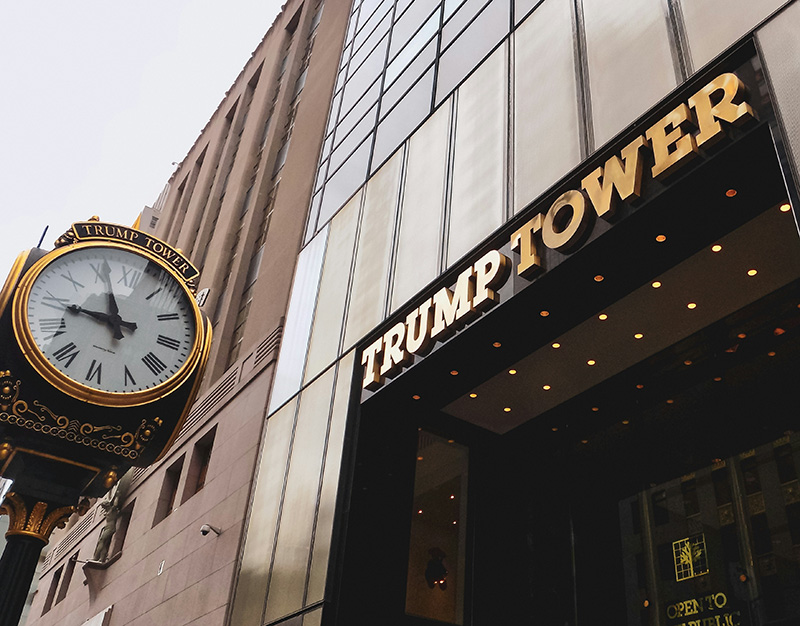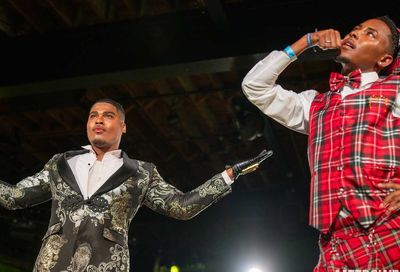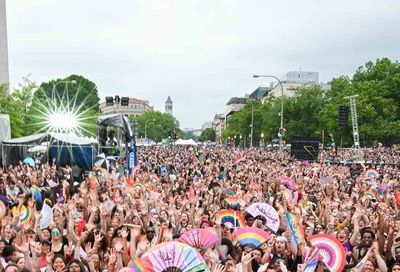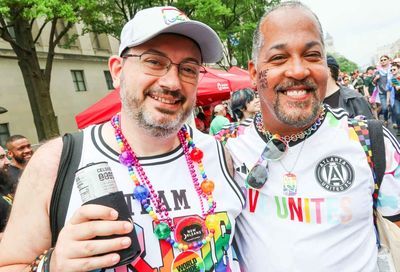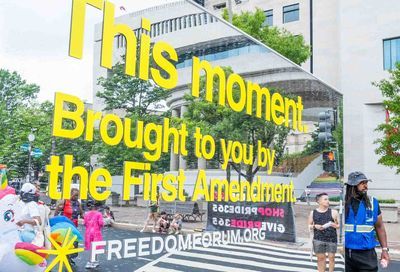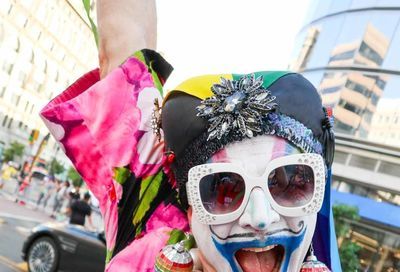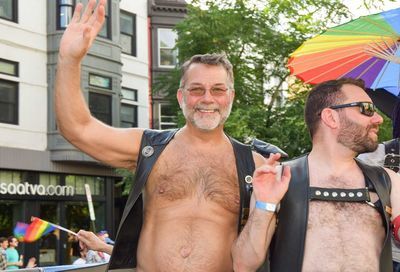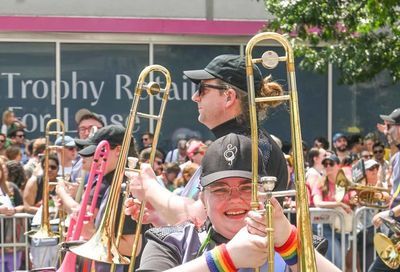Leading Authority
Commentary: Center Field
If you freeze-frame the Milk movie trailer on YouTube, you can see the ”1051” atop the streetcar used in a scene portraying an angry demonstration. The car from San Francisco’s Municipal Railway (”Muni”) is now a ”moving museum” dedicated to Harvey Milk, with informational panels on Milk’s career.
In a larger sense, we have much to learn from Milk and other gay rights pioneers — not just how to fight for ourselves, but how to change the terms of the debate.
The film shows Milk (in an extraordinary portrayal by Sean Penn) quoting Glinda the Good Witch: ”Come out, come out, wherever you are!” Milk refused to accept the more closeted approach favored by David Goodstein of The Advocate. He understood that gaining power required public engagement. In contrast to this year’s unsuccessful ”No on 8” campaign, Milk debated John Briggs, sponsor of 1978’s Proposition 6, which would have banned gay people and their supporters from working in public schools. Briggs lost.
Grassroots methods were also used to good effect in 1971, when members of Washington’s newly formed Gay Activists Alliance and others stormed the ballroom of the Shoreham Hotel and disrupted a convention of the American Psychiatric Association (APA), which defined homosexuality as a pathology. Frank Kameny seized the microphone and told the assembled ”experts” that it was not for them to describe homosexuality, it was for gay people to describe themselves. He declared homosexuality just as natural and healthy as heterosexuality. Two years later, as Kameny (now 83) enjoys putting it, APA gave gay people ”a mass cure.”
Milk’s coalition-building has modern echoes. At a Nov. 15 rally on the steps of San Francisco City Hall, where Milk stood 30 years before, former City Supervisor Rev. Amos Brown, pastor of the Third Baptist Church and president of the local branch of the NAACP, said, ”We live in a nation in which we are in the Bill of Rights accorded freedom from religion and freedom of religion, and no religion tells the state what to do in America.” He also invoked the Equal Protection clause of the 14th Amendment and said that GLBT people deserve its protection the same as African Americans.
Brown asked religious fundamentalists, ”What makes you think that you can protect marriage? When you look at the record in these United States of America, the divorce rate is the highest not in California, not in Massachusetts, but the divorce rate is the highest in the Bible Belt. … You can’t blame gays and lesbians for not being able to keep your own stuff together!”
Brown’s fiery remarks are consistent with the prophetic preaching tradition of the black church, a tradition that includes ruffling feathers. In the middle of a recent pro-gay sermon, Brown was interrupted by an outraged younger minister who charged the pulpit and seized a microphone before being led away. (Apparently the younger man was not as compelling as Kameny.) On Nov. 21, some black ministers boycotted the S.F. NAACP’s annual fundraising dinner in reaction to Brown’s opposition to Proposition 8. One pastor said, ”The people have spoken on this issue. It became law and everyone should abide by that.” The African-American Civil Rights Movement would have died in the cradle had its leaders taken such an attitude.
Professionalizing the movement and hiring experts is fine and necessary to compete with well-funded adversaries, but we must keep in mind what pioneers like Milk and Kameny understood decades ago: that we are the authorities on ourselves. If we win establishment access but forget why we sought it, the greater movement is reduced to personal ambition.It’s not enough to find the right messaging to reach particular demographics. We must make personal connections to ensure that voters know individual GLBT people. After losing an expert-guided initiative battle that cost us $40 million, perhaps it’s time to take fresh inspiration from our forebears in claiming our fundamental American right to ”the pursuit of happiness” and rebuking fundamentalists who invoke sectarian dogma to deny us this right that they take for granted.
Naturally, what worked in one time and place may not work in another. A successful campaign requires more than stirring oratory. But the point of any fight is lost if we avoid getting to it. You are the world’s leading expert on you. Help make history. Speak up.
Richard J. Rosendall is a writer and activist whose work has appeared on Salon.com and the Independent Gay Forum, www.indegayforum.org He can be reached at rrosendall@starpower.net.
Support Metro Weekly’s Journalism
These are challenging times for news organizations. And yet it’s crucial we stay active and provide vital resources and information to both our local readers and the world. So won’t you please take a moment and consider supporting Metro Weekly with a membership? For as little as $5 a month, you can help ensure Metro Weekly magazine and MetroWeekly.com remain free, viable resources as we provide the best, most diverse, culturally-resonant LGBTQ coverage in both the D.C. region and around the world. Memberships come with exclusive perks and discounts, your own personal digital delivery of each week’s magazine (and an archive), access to our Member's Lounge when it launches this fall, and exclusive members-only items like Metro Weekly Membership Mugs and Tote Bags! Check out all our membership levels here and please join us today!








